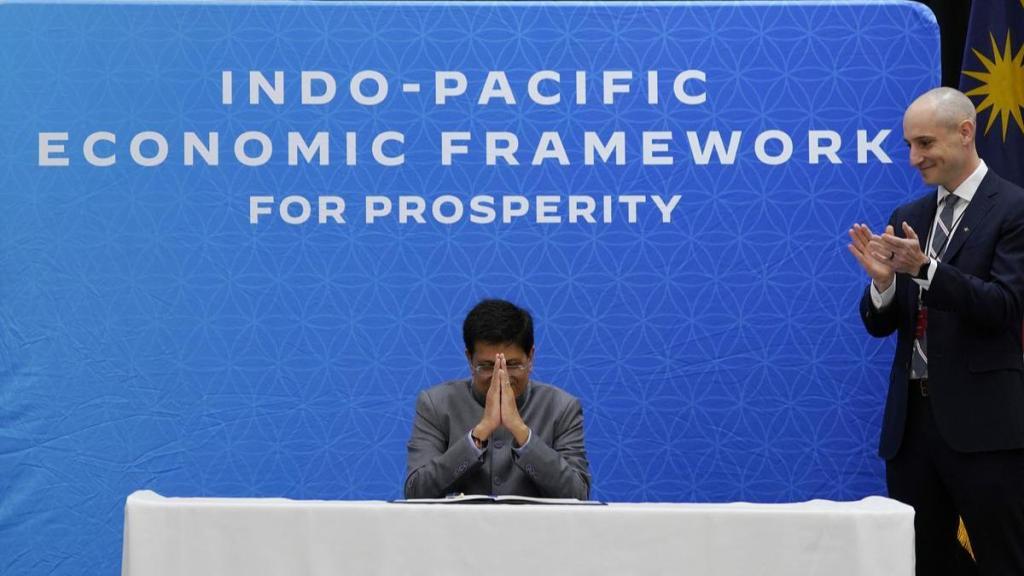India and 13 other members of the Indo-Pacific Framework for Prosperity formally signed on the supply chain agreement resilience agreement that is one of the key areas identified for closer economic cooperation between the member countries.
The agreement was signed late last night on the sidelines of the ministerial meeting of the 14-member bloc in San Francisco. The framework brings together Australia, Brunei Darussalam, Indonesia, Fiji, Japan, Korea, Malaysia, New Zealand, Philippines, Singapore, Thailand, US and Vietnam.
Together these countries account for 40% of the world’s economic output and 28% of trade. The supply chain agreement was signed on behalf of India by Commerce and Industry Minister Piyush Goyal.
IPEF, which was launched in May 2022 by US President Joe Biden differs from a traditional trade agreement. It has four tracks – trade, supply chains, clean energy and infrastructure, and tax and anti-corruption. Each member has the option to not be part of any of the four tracks of negotiations.
India has opted to stay out of negotiations on trade but has an observer status in trade talks.
The agreement on supply chains is expected to make IPEF supply chains more resilient, robust and well integrated, according to a statement.
“India joins U.S. and 12 other IPEF partners to ink the IPEF Supply Chain Resilience Agreement, a first-of-its-kind international agreement that will fortify and strengthen global supply chains; and foster adaptability, stability and sustainability” Goyal posted on microblogging site ‘X’.
Negotiations on the supply chain agreement were concluded on May 27 this year in Detroit.
The members are expected to announce the conclusion of talks for clean economy and fair economy pillars also during this week.
Under the agreement, IPEF partners seek to provide a framework to build their collective understanding of significant supply chain risks; improve crisis coordination and response to supply chain disruptions; facilitate cooperation, mobilise investments, promote regulatory transparency in sectors and goods critical to national security and public health and safety. The critical sectors would be identified by the member countries.
To implement and monitor the agreement, the bloc would set up The IPEF Supply Chain Council. The council will meet every year and all the members would have to report on the progress of implementation of the agreement.
Besides the council, the block would set up The IPEF Supply Chain Crisis Response Network and The IPEF Labour Rights Advisory Board.


